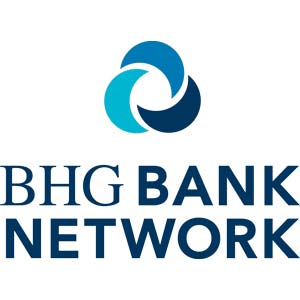Building your institution’s culture takes time. There may be highs and lows, but if you prioritize listening to and engaging within your team, you will persevere.
We all know how hard it is to attract and retain top talent in the competitive community bank market. As a chief people officer, I have seen the value of creating and maintaining an agile, people-first work culture. Its daily contribution to operational effectiveness is enormous, serving as a stabilizing and steady force even in the face of external obstacles.
In this article, we will share industry best practices and discuss specific ways that banks can build an agile, people-first culture that gives their organization a competitive edge.
The High Cost of Employee Dissatisfaction
The cost of overlooking employee engagement and turnover can be significant. According to Gallup, the cost of replacing a disengaged individual employee can range from one-half to two times the employee’s annual salary.1 Meanwhile, companies with the most engaged employees were 22% more profitable than those with the least.2
Signs of “disengagement” are as you might expect. They can include a slow working tempo, lack of interest in work, being easily distracted and minimal output. Additionally, disengaged employees often possess negative attitudes about their work and organization, which can hurt the productivity and morale of your other employees — not to mention your bottom line.
Three Stages of Culture Development
To avoid the cost and hassle of recruiting new talent while maintaining an excellent relationship with your current employees, consider these three key points to create an agile, people-first company culture: Know Your Purpose, Know Your People and Build Your Culture.
Know Your Purpose
Define your bank’s culture so that it becomes your “North Star.” Start by establishing new core values or refreshing existing ones. Conduct a thorough analysis to identify what values you want your employees to demonstrate within the context of what is most important to your bank and to your community. This approach can provide your team with a specific direction in which to anchor expectations and an actionable roadmap for employee behaviors.
It is also important to recognize and acknowledge appropriate behaviors. It will help reinforce and speed up the adoption of the culture you hope to build. Establishing a system of core values also helps serve as a guideline for the type of individual you want to hire and who you want to promote.
Know Your People
The needs of employees constantly evolve, especially during major macroeconomic events such as a recession or the recent pandemic. There are easy ways to regularly gauge your employees’ moods and attitudes. For example, a comprehensive semiannual employee survey can provide feedback about what is working, what is not and what can be done better. This information can help ensure your culture is embraced and allows you to quickly address any unfavorable trends that may emerge.
Taking the time to build relationships with your employees and getting to know them on a personal level can also yield beneficial cultural impacts. Authentic connections between individual contributors and their senior leaders can forge a powerful “in it together” perspective that fuels employee satisfaction and spirit. Employees who feel respected, heard and seen can become personal ambassadors of your bank’s culture within your institution and community.
Build Your Culture
Culture can grow organically, but it requires action to blossom. Offering programs, perks and experiences that matter to your employees is an essential component of successful engagement. There is no shortage of options, even if your budget and resources are limited. All it takes is a bit of research, a little creativity and some thoughtful planning.
To help demonstrate specific examples of “taking action,” here are several recent programs and initiatives that BHG Financial has introduced to enhance its work culture. These examples are just for illustration and to spark your own imagination. However, it is worth noting that the development of these programs was informed in many cases by our employees’ feedback in surveys and other engagements — reinforcing the value of “knowing your people.”
Recent BHG Financial programs include:
- Transitioned to a permanent hybrid workforce with employees across the country.
- Launched BHG Pulse, a program focused on the physical, emotional, social, financial and occupational well-being of our employees.
- Introduced Wellness Weekends. All employees get one Friday off each month to refresh and recharge. It has quickly become our team’s favorite benefit while maintaining and enhancing productivity.
- Created “Women in Tech,” our first Employee Resource Group, which provides training, connections and support to women within the tech industry.
- Introduced BHG Together, a diversity, equity and inclusion program that provides monthly support, celebration and training.
- Offered BHG LEAD, which provides employees with actionable steps they can take to become better leaders and grow their BHG careers.
Concluding Thoughts
Building your institution’s culture takes time. There may be highs and lows, but if you prioritize listening to and engaging within your team, you will persevere. We call this principle “Winning Together,” acting as one team by respecting, encouraging and valuing each other’s contributions. It has allowed BHG to create an award-winning culture and achieve continued growth. We believe it can be an equally successful core value for you and your bank’s employees as well.
Katie Barnes is the chief people officer at BHG Financial, a leading provider of financial solutions for professionals, businesses and banks. In her role, she oversees the strategy and direction of BHG’s People Development (PD) department, leading various programs such as Talent Acquisition, Talent Management, Employee Experience and Compensation.









